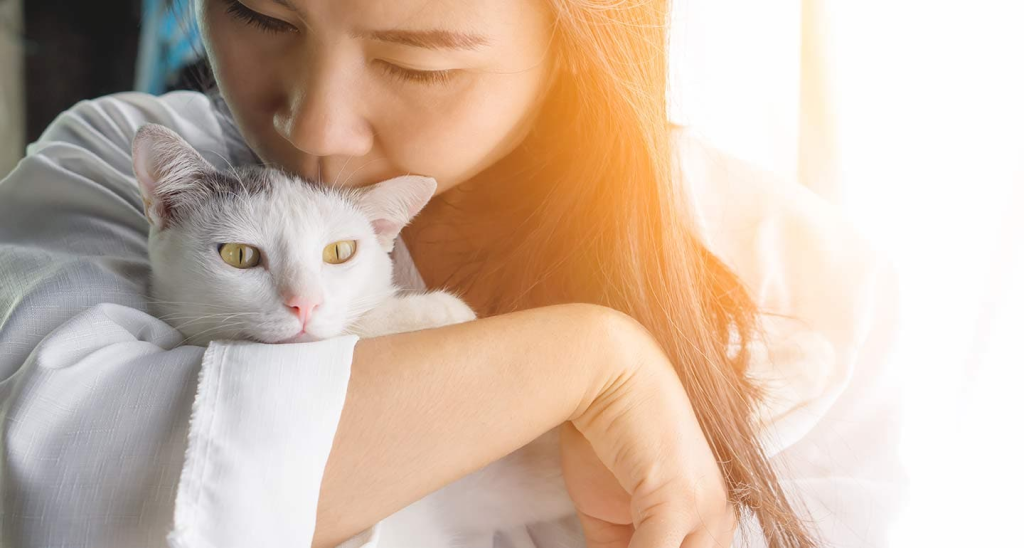
Cats are very sensitive to feelings and can easily sense when their owners are stressed or anxious. Your cat is watching you closely and it will often notice your anxiety. This is one of the reasons why cats easily bond with humans as they bond at an emotional level.
All cat owners have noticed a sudden change in their cats’ moods especially when the owners are anxious. A sad cat is the sorriest thing you will ever see. This cute thing can move even the hardest of souls. The droopy eyes, constant purring, and a weird stare are what you will see when a cat senses your anxiety. How they sense this emotional turmoil is a wonder that has attracted scientific research.
Can cats sense anxiety?
Yes, they can. Cats are as sensitive to anxiety as they are to happiness. These animals have always been a wonder to the human race and their ability to feel is phenomenal. I have seen cats who can sense anxiety attacks in their owners. It’s such a sad sight as the cat wiggles its tail in despair. It is almost the same way a little kid senses unhappy emotions in his mother. The next time you feel anxious, you will have a direct impact on your cat.
How do cats sense anxiety?
A cat picks up cues from the owner’s body language and reacts to these cues in what is called social referencing. A group of scientists sought to get to the bottom of this. They invited a group of cat owners for an experiment. Each cat owner was required to bring his or her cat to a room with a fan tied to a steamer. These items were meant to raise an atmosphere of anxiety. Half of the group was instructed to talk to their cats in a relaxed mood while looking at the fan while the other half was asked to talk to their cats fearfully while looking at the fan.
The results of this experiment showed that eighty percent of the cats first observed their owners’ behavior before reacting to the situation. All the cats based their reactions on the initial reactions of their owners to the fan.
This experiment proved that cats look at cues from the owner to sense anxiety. If you are trembling or have an adverse emotional message, the cat will pick on this cue and will react. You might notice the cat looking around to try and figure out what’s happening to you or your cat might curl up in a corner and hang its head. Below is a summary of the senses a cat uses to pick up anxiety cues.
Sense |
Cue |
Vision |
Trembling, pacing, palpitations |
Hearing |
Panic in voice, shouting or screaming |
Smell |
Adrenaline in sweat and pheromones |
How do cats respond to anxiety?
A cat on alert points its ears and widens its eyes. However, when a cat senses anxiety, it often tries to engage the owner to lighten up the mood. A study conducted at the Nottingham Trent University showed that cats will automatically detect anxiety and stress at home and often does something to change their mood. Your anxiety can also negatively affect the cat’s health.
Yes, your cat will try to cheer you up. A domesticated cat interacts with a human at a very deep emotional level. In this interaction, the cat develops intuition and a unique bond with the owner. The cat will approach you more frequently and rub itself against your feet. If you are sleeping, the cat will come to you and rub its head against you. This is the cat’s way of cheering you up. Some of the reactions you will notice are as listed below.
Looking at you
The poor kitty will be staring at you a lot often. This is its way of giving you its undivided attention and trying to figure things out. This sweet animal will be sitting at your feet and looking up without moving. These pitiful looks will melt your heart and you might find yourself picking the cat up to try and reassure it that all is alright. The stares might get weird if you don’t respond, so, please pick up the kitty and rub it in reassurance.
Rubbing itself against you
This is a common gesture when a cat notices anxiety. This kitty will rub against your feet when you are standing. The cat is trying to soothe you and make it better for you. Sweet, isn’t it? The sweet and tender rubs will calm you down. If you are seated, the cat will jump on you and start rubbing its head against you. This is therapeutic and the concern will lower your anxiety.
Purring
A cat purrs softly when it notices anxiety in you. This soft and sweet purr has been proven to lower your blood pressure and bring you calmness. Cats are known to be amazing therapy animals in moments of emotional turmoil. The purr is a communication technique like a sweet lullaby. If you have bonded with your cat for long, your emotional distress does not go down well with it.
Conclusion
Domesticated cats develop cognitive and social skills that aid them in understanding human emotions. The social behavior adapted by cats makes it easy for them to detect human emotional changes. The social cues and body language will notify the cat of a problem. The cat’s intuition will kick in and it will try to improve the situation in the best way that it can. Cats have been used as therapy animals I anxiety and stress. If you are often anxious and your blood pressure tends to spike, a cat companion will be ideal to calm your nerves.
FAQs
Can my cat know when I am anxious?
Yes, your cat will pick up cues from you and it will know that something is wrong with you.
Why does my cat act weird when I’m anxious?
The cat can sense your anxiety and it reacts by trying to cheer you up.


